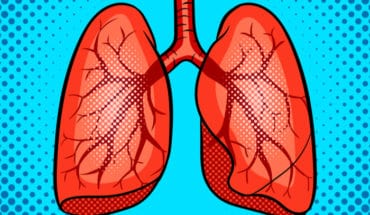Melbourne researchers have made a breakthrough into how two chronic respiratory diseases in childhood affect the immune system, paving the way for better treatments.
The research, led by Murdoch Children’s Research Institute (MCRI) and published in Mucosal Immunology, has found suppurative lung disease and wheezing have the same inflammatory profiles despite their differing symptoms.
MCRI Dr Melanie Neeland said while suppurative lung disease and wheezing were common in children, due to a poor understanding of the underlying mechanisms, treatment options were limited and disease recurrence was common.
The study involved 93 children who had lung fluid and blood samples taken at The Royal Children’s Hospital.
It found, for the first time, two treatable endotypes (disease subtypes) that were similar in frequency and immune signature across both respiratory diseases.
Dr Neeland said the discovery was measurable in a clinical setting via a lung sample, and if validated in future studies, had the potential to change clinical management.
“The findings provide a significant advance in our understanding of lung inflammation in children with wheeze and suppurative lung disease,” she said.
“We showed that while the clinical presentations of these two diseases are different, identical inflammatory profiles can be found in the lungs and therefore the same anti-inflammatory treatments could be effective against both.
“Importantly, about 50 per cent of children in each disease group showed a hyper-inflammatory response that could potentially be treated with therapies already approved for use in children.
“Targeted anti-inflammatory treatments, such as repurposing asthma biologic medication, could be a new therapeutic approach to treat both diseases.”
Preschool asthma/recurrent wheeze is a leading cause of hospital admissions in children and results in poor lung function which persists for decades. Suppurative lung diseases span a range of lung diseases characterised by chronic cough, airway obstruction and poor long-term health.
MCRI Dr Shivanthan Shanthikumar said children with chronic respiratory diseases have not benefitted from advances in care as adults with these conditions.
“Currently, management of these conditions in children is lacking, particularly for chronic cough which relies on prolonged antibiotic use despite evidence they’re not very effective,” he said. Recurrent courses of antibiotics for such a highly prevalent condition are of significant concern with antimicrobial resistance being a leading public health threat.
“But we can better manage chronic respiratory diseases if we can identify and target inflammatory profiles which underly these serious health conditions.”
Researchers from the University of Melbourne and The Royal Children’s Hospital also contributed to the findings.
Publication: Melanie R. Neeland, Liam Gubbels, Anson Tsz Chun Wong, Hannah Walker, Sarath C. Ranganathan and Shivanthan Shanthikumar. ‘Pulmonary immune profiling reveals common inflammatory endotypes of childhood wheeze and suppurative lung disease,’ Mucosal Immunology. DOI: 10.1016/j.mucimm.2024.03.001
*The content of this communication is the sole responsibility of MCRI and does not reflect the views of the NHMRC.
- January’s a Frost (1963) - 2nd January 2026
- Gen Z’s extreme health pledges - 2nd January 2026
- Use weight-loss jabs responsibly in 2026 - 2nd January 2026







